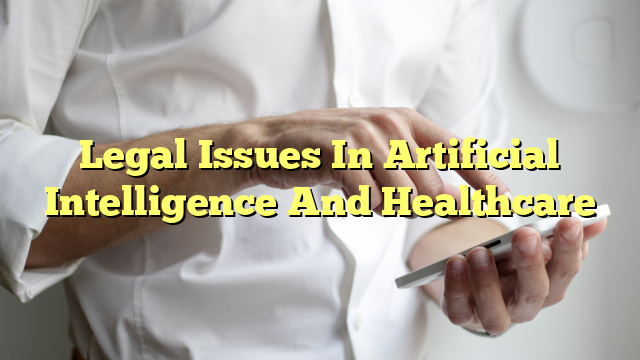Table of Contents
- Controversial Issues with Artificial Intelligence in Healthcare
- Ethical and Legal Challenges of Artificial Intelligence
- Legislation for Artificial Intelligence in Healthcare
Controversial Issues with Artificial Intelligence in Healthcare
Artificial intelligence (AI) in healthcare is a controversial subject. On one hand, using AI to diagnose and treat diseases could help reduce medical errors, improve patient safety, and optimize treatment. On the other hand, AI raises important legal and ethical issues that must be addressed before its use can be widespread.
One of the biggest concerns is the potential for AI to replace human healthcare providers. While AI algorithms can be trained to diagnose diseases more accurately than humans, they cannot replace the level of care provided by a healthcare provider. AI can also lead to a lack of trust and transparency, as patients may not be aware of the decisions being made by the algorithm.
Another controversial issue is the potential for AI to be used as a tool of discrimination. AI systems can be trained to make decisions based on a patient’s race, gender, or other demographic information. This can lead to unequal access to care and other inequities in the healthcare system.
Finally, AI raises concerns about privacy and data security. As more healthcare data is collected and stored in digital systems, the risk of data breaches and misuse of personal information increases.
Ethical and Legal Challenges of Artificial Intelligence
The ethical and legal implications of AI in healthcare are still being explored. As AI becomes more widespread in healthcare, ethical and legal experts must consider how to regulate and control its use.
One of the biggest ethical challenges is the “black box” problem. This is the idea that AI algorithms can make decisions without human oversight and without clear explanations as to why those decisions were made. This can lead to a lack of accountability and transparency, and raises questions about who is responsible for AI-related mistakes.
The legal implications of AI are also complex. AI systems must adhere to existing laws and regulations, such as the Health Insurance Portability and Accountability Act (HIPAA). However, existing laws may not be sufficient to regulate the use of AI in healthcare.
Finally, the use of AI in healthcare raises questions about who should be responsible for any AI-related harm. As AI becomes more widespread, healthcare providers, AI developers, and other stakeholders must consider how to responsibly use and manage AI in healthcare.
Legislation for Artificial Intelligence in Healthcare
There is currently no specific legislation regulating the use of AI in healthcare. However, the government is working to create guidelines and standards for the use of AI in healthcare.
In 2018, the US Food and Drug Administration (FDA) issued guidance for the use of AI in healthcare. This guidance provides recommendations on how to develop, validate, and deploy AI algorithms, as well as how to ensure the quality, safety, and effectiveness of these algorithms.
The Office of the National Coordinator for Health Information Technology (ONC) also issued a set of principles for the use of AI in healthcare. The ONC’s principles focus on protecting patient privacy, ensuring governance and accountability, and providing transparency about AI algorithms.
In addition, the Centers for Medicare & Medicaid Services (CMS) is working on a policy to regulate the use of AI in healthcare. This policy will focus on providing guidance for the development, validation, and use of AI algorithms in healthcare.
Conclusion
AI presents both opportunities and challenges for healthcare. While AI can help improve diagnosis and treatment, it also raises important legal and ethical issues that must be addressed. The government is working to create guidelines and policies to regulate the use of AI in healthcare, but more work needs to be done to ensure the responsible use of AI in healthcare.
What are the controversial issues with artificial intelligence in healthcare?
The controversial issues with AI in healthcare include the potential for AI to replace human healthcare providers, the potential for AI to be used as a tool of discrimination, and the potential for data breaches and misuse of personal information.
What are the ethical and legal challenges of artificial intelligence?
The ethical and legal challenges of AI include the “black box” problem, the need to adhere to existing laws and regulations, and the question


AI and healthcare could be a great source of progress and growth, but it’s important to consider the legal implications as well.